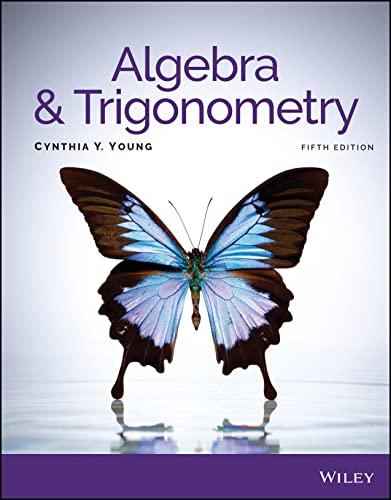Question
6) A golf club currently has 400members that pay annual dues to play golf on the course. Historical records show that 36%of the members use
6) A golf club currently has 400members that pay annual dues to play golf on the course. Historical records show that 36%of the members use the course at least once a week during the summer season. To verifythis, a random sample of 100members was selected. Complete parts a through d below.
a. Calculate the standard error of the proportion.
b. What is the probability that 32or more members from the sample used the course at least once aweek?
c. What is the probability that between 30and 40members from the sample used the course at least once aweek?
d. If 48members from the sample used the course at least once aweek, does this support the historical records of courseusage? Select the correct choice belowand, fill in the answer box to complete choice.
7)According to a recentsurvey, 77% of teens ages12-17 in a certain country used social networks in 2009. A random sample of 140teenagers from this age group was selected. Complete parts a through d below.
a. Calculate the standard error of the proportion.
b. What is the probability that less than 79%of the teens from this sample used socialnetworks?
c. What is the probability that between70% and80% of the teens from this sample used socialnetworks?
d. What impact would changing the sample size to 200 teens have on the results of partsa, b, andc? Choose the correct answer below.
10)For a normal population with a mean equal to 71 and a standard deviation equal to 15, determine the probability of observing a sample mean of 74 or less from a sample of size 16.
p(x (less than or equal to) 74) =
12)According to theresearch, 49% of homes sold in a certain month and year were purchased byfirst-time buyers. A random sample of 185 people who just purchased homes is selected.
Complete parts a through e below.
a. Calculate the standard error of the proportion.
b. What is the probability that less than 96 of them arefirst-time buyers?
c. What is the probability that more than 99 of them arefirst-time buyers?
d. What is the probability that more than 90of them arefirst-time buyers?
e. What is the probability that between 81
and 85 of them arefirst-time buyers?
Step by Step Solution
There are 3 Steps involved in it
Step: 1

Get Instant Access to Expert-Tailored Solutions
See step-by-step solutions with expert insights and AI powered tools for academic success
Step: 2

Step: 3

Ace Your Homework with AI
Get the answers you need in no time with our AI-driven, step-by-step assistance
Get Started


